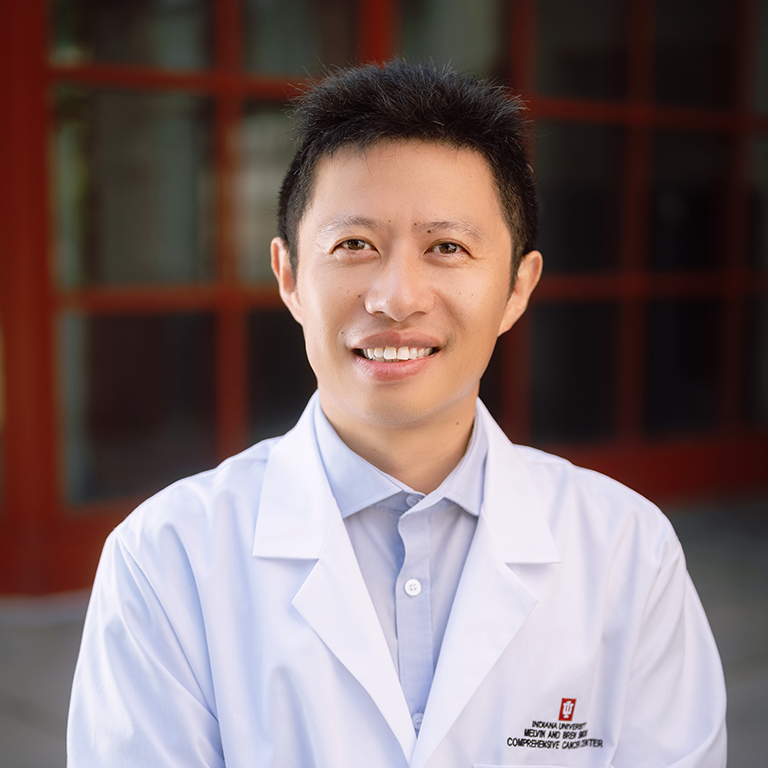Five questions with Jia Shen, Ph.D.
August 28, 2023
August 28, 2023

Jia Shen, Ph.D., is an assistant professor in the Department of Medical and Molecular Genetics at IU School of Medicine and a member of the Tumor Microenvironment and Metastasis research program at IU Simon Comprehensive Cancer Center. Based in Bloomington, Shen’s research lab focuses on understanding and preventing the recurrence of glioblastoma, a fast-growing brain tumor.

Dr. Shen talked about his research and more in this “5 Questions” feature.
Glioblastoma is a type of brain cancer that is extremely dangerous. Unfortunately, it tends to come back even after treatment because there are specific cells in the tumors called glioblastoma stem cells (GSCs) that are very tough and can resist common cancer treatments like chemotherapy and radiotherapy. These cells have special abilities that help them stay dormant and multiply, making it difficult to eliminate them completely. In our research, we’re trying to find a way to effectively kill these GSCs by using a “one-two punch” strategy. First, we want to block their ability to keep renewing themselves, essentially stopping them from growing and spreading. Second, we aim to activate the immune system to attack and destroy these cancer stem cells. By combining these two aspects, we hope to deliver a powerful blow to the GSCs and improve the chances of successfully treating glioblastoma.
During my postdoctoral research, I focused on a technique called "viral mimicry" to target cancer cells. The idea was to activate certain elements naturally present in our DNA, called repetitive elements, in cancer cells until they reached a level that the cells couldn't tolerate. This approach aimed to control the growth of tumors. It was successful in regular cancer cells, so I wondered if it could also be effective against cancer stem cells, which are the main culprits behind tumor formation. Excitingly, our initial results have confirmed this hypothesis, and we are thrilled to continue exploring this promising avenue.
In the past few years, I've had the opportunity to mentor and train some young students and interns in the laboratory. It has been a great privilege for me. These aspiring individuals were motivated and eager to learn. I am proud to share that many of them have gone on to become successful biomedical scientists, either working in universities or in companies focused on medical research and development. It brings me immense joy to see their progress and know that I played a part in their journey.
Indiana University is a well-respected public university, and the IU Simon Comprehensive Cancer Center is a valuable resource for my cancer research. They offer a wide range of clinical resources and support that can greatly benefit my work in translating scientific discoveries into practical solutions for cancer treatment. One particularly exciting aspect is the medical sciences program at Indiana University Bloomington, which boasts a talented group of principal investigators specializing in cancer stem cells. I am thrilled at the opportunity to collaborate and learn from these experts in the field.
I'm a huge sports enthusiast! During my free time, I love engaging in various physical activities like playing soccer, going for runs, swimming, and trying out different sports. It's a fun and enjoyable way for me to stay active and make the most of my leisure time.